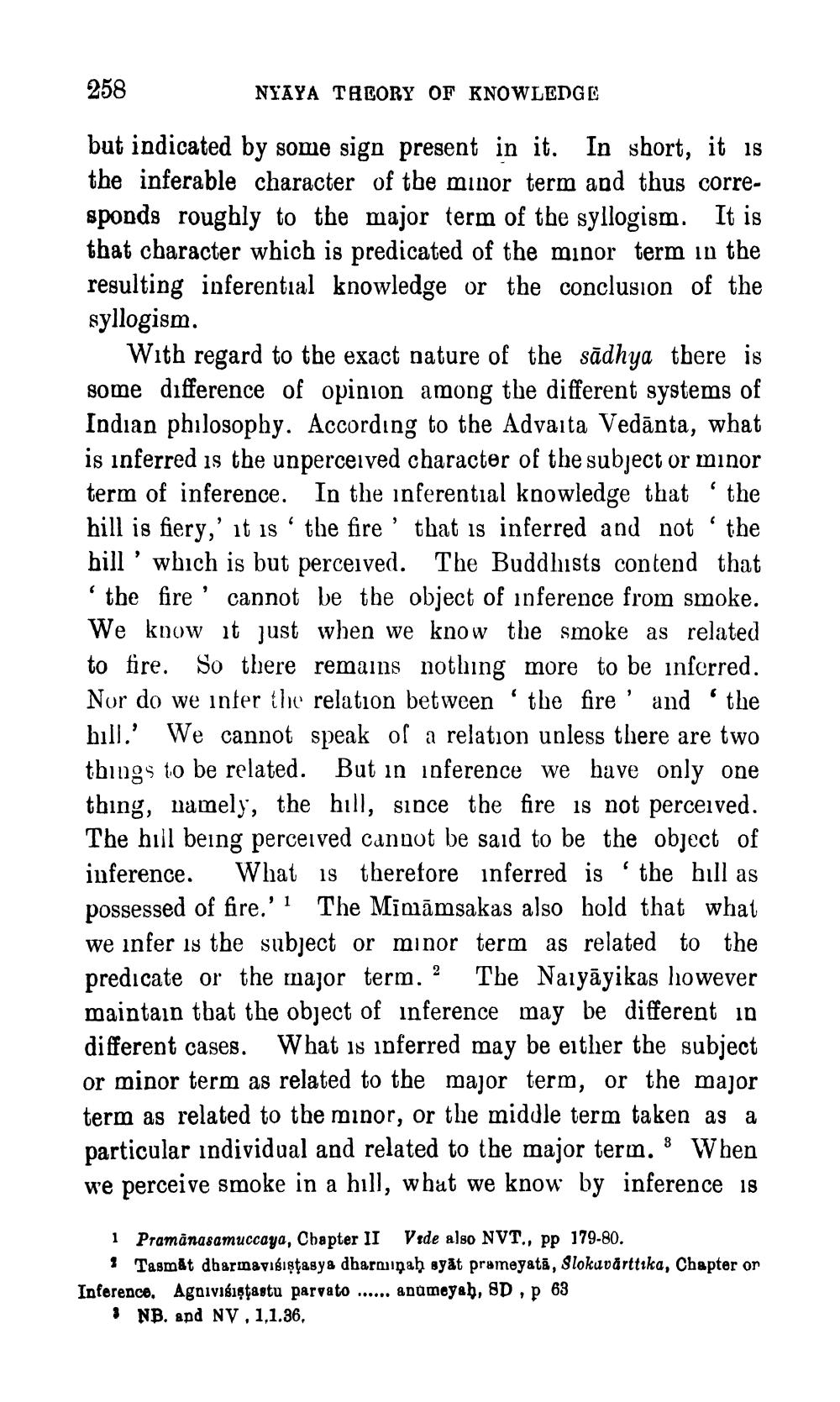________________
258
NYAYA TAEORY OF KNOWLEDGE
but indicated by some sign present in it. In short, it is the inferable character of the minor term and thus corresponds roughly to the major term of the syllogism. It is that character which is predicated of the minor term in the resulting inferential knowledge or the conclusion of the syllogism.
With regard to the exact nature of the sādhya there is some difference of opinion among the different systems of Indian philosophy. According to the Advaita Vedānta, what is inferred is the unperceived character of the subject or minor term of inference. In the inferential knowledge that the hill is fiery,' it is the fire that is inferred and not the bill' which is but perceived. The Buddhists contend that 'the fire cannot be the object of inference from smoke. We know it just when we know the smoke as related to fire. So there remains nothing more to be inferred. Nor do we inter the relation between the fire' and 'the hill.' We cannot speak of a relation unless there are two things to be related. But in inference we have only one thing, namely, the hill, since the fire is not perceived. The hill being perceived cannot be said to be the object of inference. What is therefore inferred is the hill as possessed of fire.'? The Mimāmsakas also hold that what we infer is the subject or minor term as related to the predicate or the major term.? The Naiyāyikas however maintain that the object of inference may be different in different cases. What is inferred may be either the subject or minor term as related to the major term, or the major term as related to the minor, or the middle term taken as a particular individual and related to the major term. 3 When we perceive smoke in a hill, what we know by inference 18
1 Pramānasamuccaya, Chapter II Vede also NVT., pp 179-80.
1 Tasmåt dharmapigistasya dharniņah syāt prameyatā, Slokuvårttıka, Chapter or Inference. Agaivisistastu parvato ...... anúmeyah, SD, p 63
NB. and NV, 1.1.36,




